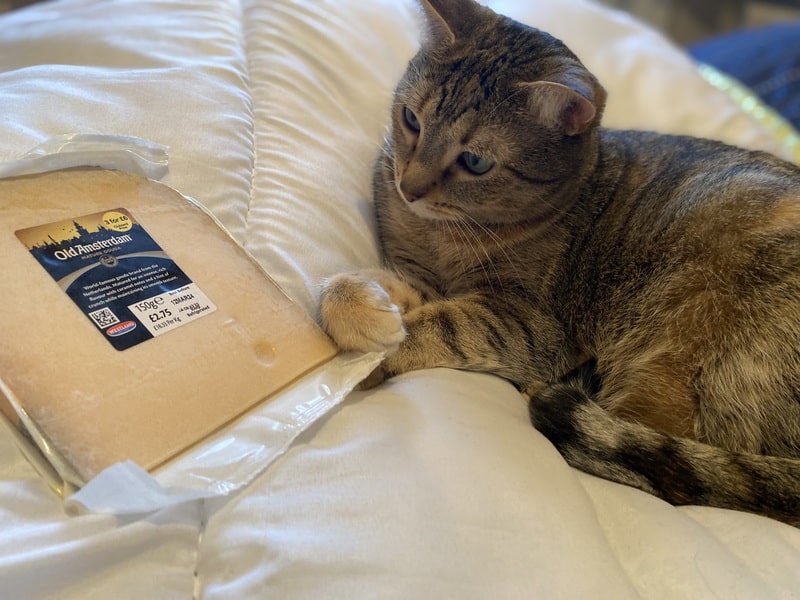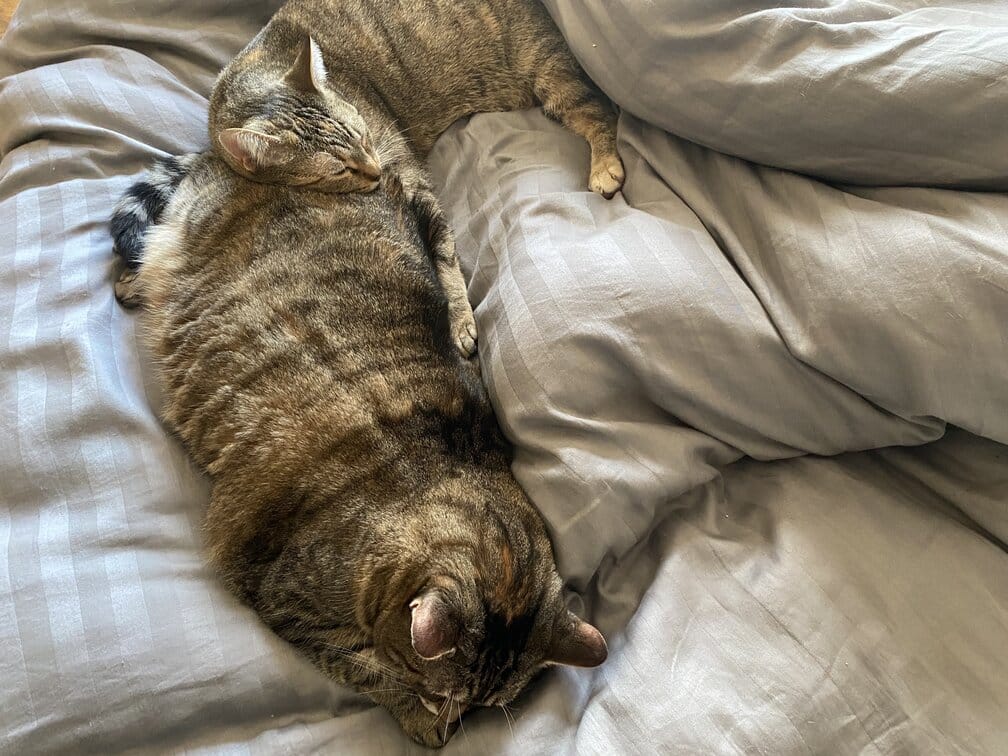The knowledge is current and up-to-date in accordance with the most recent veterinarian research.
Learn more »
Hi, I’m Dr. Lauren! Read my introduction to learn more about me and my two adventurous cats, Pancake and Tiller.
Cats and cheese. Two of my favorite things on the planet. Not necessarily together, because it often ends with an excessive amount of cat hair and too little cheese (as most of my cats also seem keen on the lactose-laden food).
When I believe of cats and their personalities, one among the books that at all times encapsulates their personalities to me is the infamous Who Moved My Cheese? The international bestseller—nothing to do in regards to the cheese movement—but really about coping with change.
Unfortunately, all my cheese-loving cats still haven’t learned how one can read in English, in order that’s where today’s missive is available in: how will you help your cat cope with change?
Change is all over the place, and our pets are higher equipped to cope with it in some regards, and worse in others. They don’t share our worry in regards to the future, but at the identical time, they due to this fact don’t get the chance to arrange for change.
Common Types Of Change That Cats Experience
- Recent household additions, which might include anything from recent people moving in, children being born, recent pets being adopted…
- Moving house, which ends up in each a change in place, smells, and sometimes people as well.
- Recent boyfriends or girlfriends which are stopping by.
- The lack of a member of the family, whether a human or one other pet, can greatly change a cat’s life. Over my profession, one among the things I even have learned to simply accept is that cats can grieve. We didn’t learn this in vet school, actually. But cats grieve. Again, and again, I’ve had families of patients tell me about their cats, grieving for a lost cat, or dog… or perhaps a person. Cats are complicated little furballs, in the perfect of the way. We now have an extended strategy to go to totally understand them!
- Our schedules and the potential for major changes. Covid was an ideal example of just how our schedules can involve cats. Suddenly everyone was working remotely, at home… adopted pets… many never spent a day without their owner, until, suddenly, that they had to return to the office. Some schedules are still evolving, but this adds to household instability, at the least from a cat’s perspective.
And other times cheese and alter can trigger stress in even the perfect of cats, including Tiller.
What Happens When Stress Occurs?
Stress in cats can manifest as various behaviors, including, but not limited to:
- Overgrooming (also called psychogenic alopecia if you ought to sound wordy)
- Urine or stool marking outside the box
- Changes in appetite
And these are only a few of the signs which are known to occur. If only cats spoke English!
Ideas to Help Change Be Feline-Friendly
So, how can we turn the tables, and keep the aged cheddar as a replacement, so to talk? Modern feline medicine has made leaps and bounds (or pounces, should you’re considering like a cat) by way of what we are able to do to assist cats acclimate to alter.
- Feline pheromones. There are some fascinating studies on the assorted components of pheromones. Detected by a vomeronasal organ, which humans only retain in essentially the most rudimentary sense, they permit detection of chemical messengers. Plug-in diffusers are actually commonplace ways to assist cats adapt to recent situations that is perhaps otherwise stressful. Note that almost all should be began prematurely of the stressful event!
- Familiar scents aren’t simply related to pheromones. Blankets from home, or shirts from favorite people can all potentially help bring a way of home right into a clinic, or otherwise strange place. Or alternately bring a scent of somebody that could be away from home back into the home.
- Consider Facetiming your feline! It would sound odd, but pets often profit from Facetime from a member of the family. If a former house member has gone off to school, a video call may help offer some routine back to a cat that’s coping with change.
- Be sure that the accouterments of change, comparable to cat carriers, aren’t just foreign objects that come out just before a stressful event (like a vet visit).
- Consider bringing tech into the scenario. Pet tech is making leaps and bounds, and could be fairly interesting for each you and your cat. A treat-dispensing camera that lets you see and talk over with your cat, and dispense food at will, might help alleviate a few of the stress that comes with change- for each you and your cat!
- Ensure your cat has a secure place at home – undisturbed, quiet, away from predominant areas of traffic, so that they have a reliable, unchanging place in the house.
Having somewhere secure and calm to chill out is significant for cats.
- Speak along with your vet. Sometimes, medical help is required, which might include behavioral consultations or behavior-modifying medication.
- Embrace the change, yourself. If you happen to are stressed, there’s a likelihood that your cat will pick up in your change, along with whatever else is going on.
Let’s face it. Stress, is, by definition, stressful. But, with the best mindset and preparation… you’ll be able to move someone’s cheese. Even a cat’s…



